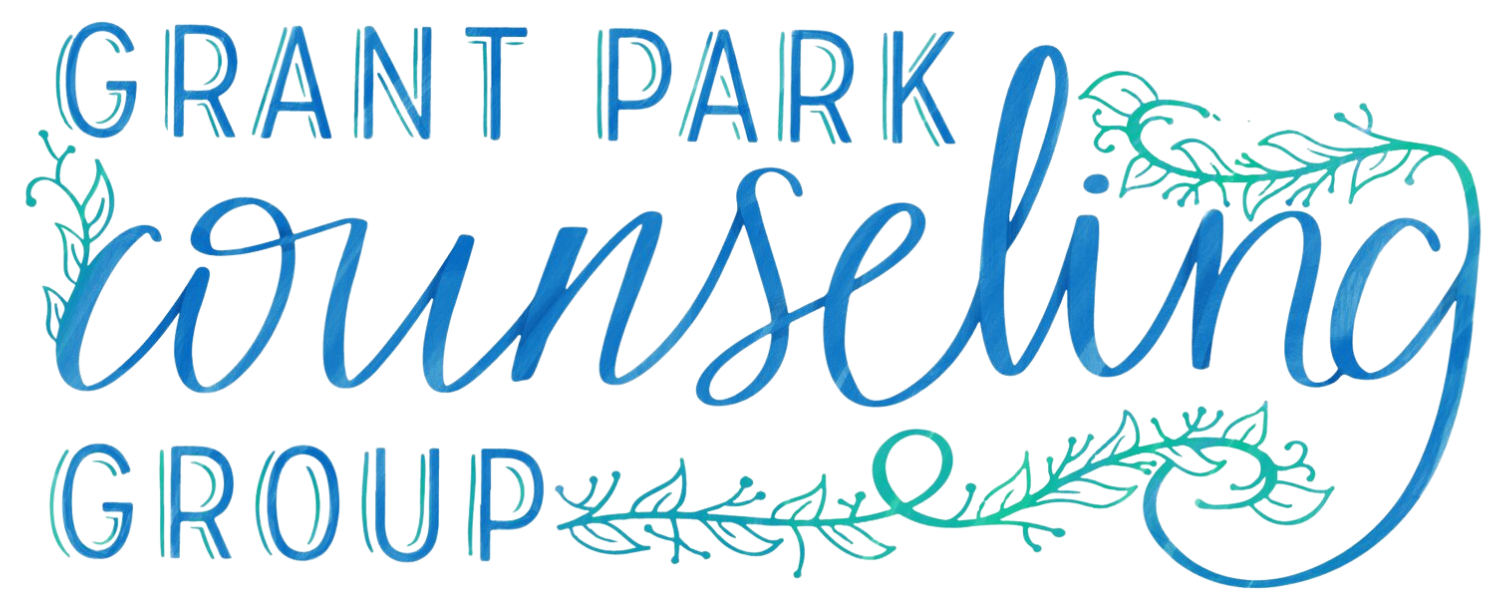This Morning Routine Will Improve Your Mood
How do you feel when you wake up in the morning? Groggy? Filled with dread? Well rested? Excited? Regardless of the first emotions you feel of the day, a proper morning routine tailored to your unique energy and personality can mean the difference between an uplifted, productive day and just going through the motions.
The most important part of a solid morning routine that helps you feel more at ease and makes your day more manageable is consistency. It can expend a lot of energy struggling to make decisions, especially first thing in the morning. In a groggy waking state, having a set plan can prevent missing key activities and, even worse, decision fatigue.
Creating a morning routine that vibes with your unique personality can increase productivity, create more positive emotions throughout your day, and generate momentum for greater functioning in the late morning — the peak time for cognitive work.
One Size Doesn’t Fit All
Everyone seems to have their own opinion of “the best” morning routine, but only you can discover the perfect routine for your mind and body. What feels right could even change as you move through the life stages. We all have different biological rhythms, various preferences, and our own unique way of being. One person may love to kick off their day with a five-mile run while another experiences greater satisfaction from gentle yoga, and a third can’t even think without a shot of espresso and a long, hot shower.
The suggestions that follow can be played with as an ongoing experiment until you find the routine that fits your lifestyle. Creating a plan that you can sustain through the seasons of your life, tweaking when necessary, is usually the most effective design for lasting change
Take Your Time
The way you wake up sets the tone for the entire day. It’s easier to move into the day with positivity when you aren’t rushing to be somewhere. We tend to feel greater motivation to wake up when we can acclimate to the day by gently rising, allowing the body to adjust to the waking state before getting out of bed.
Keep your phone on its charger until you’re ready to get to work. Research indicates that tuning into screens first thing in the morning, although a common habit, is correlated with greater feelings of depression. Wait to check email, texts, and social media until later in your day.
Instead, try opening the blinds first thing to let in sunlight, increasing alertness and energy. By playing uplifting or upbeat music, the entire brain becomes further stimulated. Stretching and self massage or foam rolling can get the blood flowing, waking up the circulatory system to bring even more energy into the body. Finally, make your bed! Keeping an orderly space and caring for the details helps us carry that order into our day. Just these simple steps can improve your mood before you ever leave your bedroom.
Feed Your Body
Research indicates that eating a light breakfast fuels the body and mind, creating greater energy in the late morning hours. While caffeine may help spring you into your day, that morning coffee won’t get you far, and may lead to a late morning crash. Eating first thing wakes up the metabolism and digestive system. Overeating or consuming refined sugars in the morning can also lead to an energetic crash, so a healthy snack like oatmeal or fruit with tea and water may be the best way to break your fast.
Stimulate Your Mind
Stimulating your brain in the morning helps us orient to higher brain functions, and one of the most recommended methods is reading. Reading something inspirational or motivational, such as a spiritual or self-help book, can remind us of our purpose and cultivate intentionality throughout the day.
Reading is actually considered a “mental break,” because we’re actually focused on one activity rather than the fifty things our brains are accustomed to juggling. You simply can’t multitask while reading, and this focused attention requires creativity and imagination, which actually stimulates the physical senses. This type of focus that exercises our minds so they become stronger and more creative.
Writing, such as “morning pages,” popularized by The Artist’s Way author Julia Cameron, is another great way of stimulating focus and creativity. Cameron recommends stream of consciousness writing first thing in the morning. Another option supported by research is listing gratitudes upon waking, which has been shown to lead to more positivity throughout the day.
Try following reading or writing with five minutes of quiet and stillness. Noticing the internal dialogue and consistently returning to sensations of the body and breath — also known as mindfulness, or meditation — tunes us into a center of awareness that we can return to throughout the day. A brief period of meditation in the morning has been shown to decrease reactivity and stress all day long.
Stimulate Your Body
Moving the body first thing in the morning creates a cascade of neurochemical reactions that help improve mood all day long. Exercise stimulates production and release of neurotransmitters such as serotonin and norepinephrine, increasing your capacity to manage stress and creating a state of euphoria. Studies indicate that people who exercise in the morning are more creative and productive the next two hours. Additionally, research shows that those who work out regularly, whether it’s aerobics, swimming, or a brisk walk, report lower stress levels and a more satisfying work-life balance.
Exercise stimulates production and release of neurotransmitters such as serotonin and norepinephrine, increasing your capacity to manage stress and creating a state of euphoria.
Create a Plan
The typical start to the work day involves checking email, following up on questions or listening to voicemails, a routine psychologists have coined as “cognitively expensive.” This way of beginning the day exemplifies a “reactive” mindset, and even though it’s easy to switch from a proactive mindset to a reactive mindset, reverse is incredibly difficult. Research suggests the most effective start to the workday is a brief planning session in which the day is broken up into manageable chunks.
Following these research-based suggestions, your morning routine may look something like the following itinerary, with adjustments for your personal preferences:
6:30-6:35 – Gently wake up, moving fingers and toes and sitting up
6:35-6:45 – Open your blinds, playing uplifting music to gentle stretching or self massage
6:45-7:00 – Eat fruit or oatmeal and drink a glass of water
7:00-7:30 – Read or write and drink tea to stimulate mind and body, followed by a brief period of stillness
7:30-8:00 – Go for a walk or practice yoga/aerobics
8:00- 9:00 – Shower and get ready; travel to work
9:00-9:15 – Start working by strategizing what you want to accomplish during each chunk of your day
This routine takes just over two hours and can be adjusted to fit your personal needs. While it can be challenging to wake up a bit earlier to start the day right, you will soon experience the benefits as you begin enjoying your mornings and find yourself feeling more alert, uplifted, and energized all day long.
References:
Berwick, C. (2017, August 30). 9 really good reasons to exercise early in the morning. Retrieved from https://www.nbcnews.com/better/health/9-really-good-reasons-exercise-early-morning-ncna795656
Choi, K., Shin, C., Kim, T., Chung, H. J., & Suk, H. (2019, January 23). Awakening effects of blue-enriched morning light exposure on university students’ physiological and subjective responses. Scientific Reports, 9(1). doi: 10.1038/s41598-018-36791-5
Chunn, L. (2017, May 10). The psychology of the to-do list—Why your brain loves ordered tasks. The Guardian. Retrieved from https://www.theguardian.com/lifeandstyle/2017/may/10/the-psychology-of-the-to-do-list-why-your-brain-loves-ordered-tasks
Ferrer-Cascales, R., Sánchez-SanSegundo, M., Ruiz-Robledillo, N., Albaladejo-Blázquez, N., Laguna-Pérez, A., & Zaragoza-Martí, A. (2018, August 19). Eat or skip breakfast? The important role of breakfast quality for health-related quality of life, stress and depression in Spanish adolescents. International Journal of Environmental Research and Public Health, 15(8), 1781. doi: 10.3390/ijerph15081781
Freeman, D., Sheaves, B., Goodwin, G. M., Yu, L., Nickless, A., Harrison, P. J., Emsley, R., Luik, A., et al. (2017). The effects of improving sleep on mental health (OASIS): A randomised controlled trial with mediation analysis. The Lancet Psychiatry, 4(10), 749-758. doi: 10.1016/S2215-0366(17)30328-0
Gocłowska, M. A., Ritter, S. M., Elliot, A. J. & Baas, M. (2018, June 11). Novelty seeking is linked to openness and extraversion, and can lead to greater creative performance. Journal of Personality, 87(2), 252-266. doi: 10.1111/jopy.12387
Improve your mood every day: Just eat breakfast. (2017, May 17). Retrieved from https://wexnermedical.osu.edu/blog/improve-your-mood-just-eat-breakfast
Leproult, R., Colecchia, E. F., L’Hermite-Balériaux, M., & Cauter, E. (2001, January 1). Transition from dim to bright light in the morning induces an immediate elevation of cortisol levels. The Journal of Clinical Endocrinology & Metabolism, 86(1), 151-157. Retrieved from https://academic.oup.com/jcem/article/86/1/151/2841140
May, C. J., Ostafin, B. D., & Snippe, E. (2018, August 23). The relative impact of 15-minutes of meditation compared to a day of vacation in daily life: An exploratory analysis. The Journal of Positive Psychology. doi: 10.1080/17439760.2019.1610480
Popkin, B. M., D’Anci, K. E., & Rosenberg, I. H. (2010). Water, hydration, and health. Nutrition Reviews, 68(8), 439-458. doi: 10.1111/j.1753-4887.2010.00304.x
Rowley, J. A. (2006, September 14). Measuring the ability to stay awake: Role of motivation. Sleep and Breathing, 10(4), 171-172. doi: 10.1007/s11325-006-0071-0
Rozgonjuk, D., Levine, J. C., Hall, B. J., & Elhai, J. D. (2018). The association between problematic smartphone use, depression and anxiety symptom severity, and objectively measured smartphone use over one week. Computers in Human Behavior, 87, 10-17. Retrieved from https://www.sciencedirect.com/science/article/pii/S0747563218302450
Sharma, H. (2015). Meditation: Process and effects. An International Quarterly Journal of Research in Ayurveda, 36(3), 233-237. doi: 10.4103/0974-8520.182756
Singh, M. (2018, December 24). If you feel thankful, write it down. It’s good for your health. National Public Radio (NPR). Retrieved from https://www.npr.org/sections/health-shots/2018/12/24/678232331/if-you-feel-thankful-write-it-down-its-good-for-your-health
Smith, A. P. (2009, July 6). Breakfast and mental health. International Journal of Food Sciences and Nutrition, 49(5), 397-402. doi: 10.3109/09637489809089415
Smith, A. P. (2001, January 9). Stress, breakfast cereal consumption and cortisol. Nutritional Neuroscience, 5(2), 141-144. doi: 10.1080/10284150290018946
Stinson, A. (2018, September 14). The benefits of making your bed every day are actually worth the effort, survey shows. Retrieved from https://www.elitedaily.com/p/the-benefits-of-making-your-bed-every-day-are-actually-worth-the-effort-survey-shows-11921745
Stoewen, D. L. (2017). Dimensions of wellness: Change your habits, change your life. Canadian Veterinary Journal, 58(8), 861-862. Retrieved from https://www.ncbi.nlm.nih.gov/pmc/articles/PMC5508938
Weir, K. (2011). The exercise effect. Monitor on Psychology, 42(11), 48. Retrieved from https://www.apa.org/monitor/2011/12/exercise
Wirz-Justice, A. (2008). Diurnal variation of depressive symptoms. Dialogues in Clinical Neuroscience, 10(3), 337-343. Retrieved from https://www.ncbi.nlm.nih.gov/pmc/articles/PMC3181887
Wong, J., & Brown, J. (2017, June 6). How gratitude changes you and your brain. Greater Good Magazine. Retrieved from https://greatergood.berkeley.edu/article/item/how_gratitude_changes_you_and_your_brain
Wood, W., & Rünger, D. (2015, September 10). Psychology of habit. Annual Review of Psychology, 67(289), 289-314. doi: 10.1146/annurev-psych-122414-033417
Yang, A. C., Huang, N. E., Peng, C., & Tsai, S. (2010, October 28). Do seasons have an influence on the incidence of depression? The use of an internet search engine query data as a proxy of human affect. PLOS ONE, 5(10). Retrieved from https://journals.plos.org/plosone/article?id=10.1371/journal.pone.0013728



